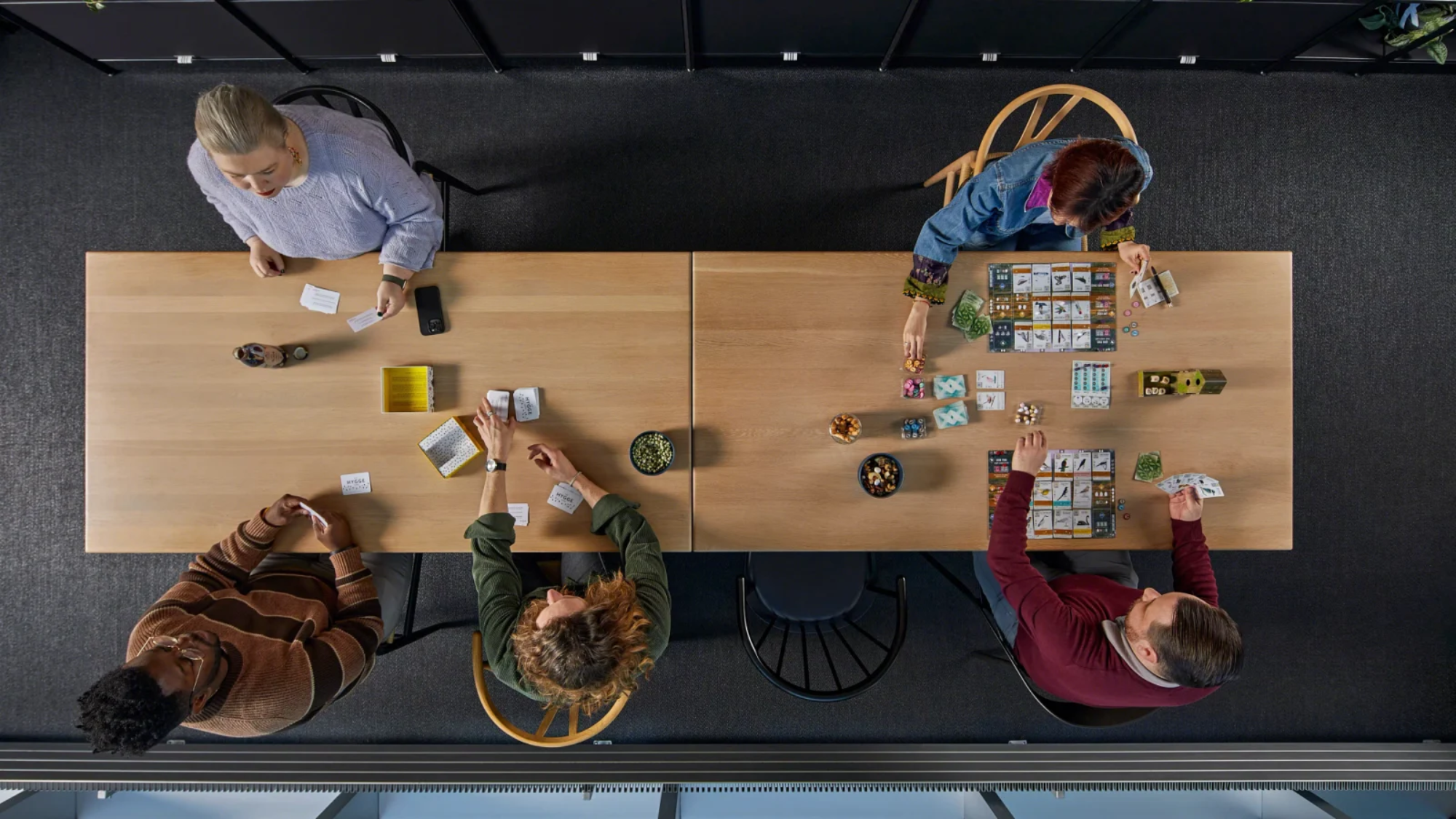Gaming at work can get a bad reputation — conjuring up images of laziness, isolation or distractions. But the Harvard Business Review, CNBC and the Hubspot Blog suggest it’s time to toss out those antiquated ideas and embrace the power of play. In three years, more than three billion people will be playing video games worldwide. And now some organizations are taking cues from universities and leveraging gaming to make work more productive, engaging and just plain fun.
“We often try to power through the day to get more work finished, which might not be as effective as planning short breaks to make time for an engaging activity, such as video games, that can help people recharge,” says Michael Rupp, co-author of Human Factors study on the impact of video games at work.
Creating gaming spaces and forming groups pulls people into the workplace — giving them a reason to show up for much needed connection even before or after work. A gaming community at Steelcase grew to nearly 200 global colleagues who connect to play video games and Esports (a team aptly named ‘Take a Seat’), as well as board games, trivia and jigsaw puzzles, connecting people virtually and in-person.

Work hard. Play hard.
Encouraging a little play at work helps to:
Create community: “You can’t make people be friends. The best you can do is provide the environment in which they do it,” says Robin Dunbar, author of “Friends” and University of Oxford professor emeritus. Friendships at work improve talent retention, and boost trust, engagement, creativity and collaboration. This is where an intentional gaming community can come into play (pun intended).
Allow for authenticity: “Games let us bring who we really are into the workplace,” says Charlie Hunt who along with Pasha Oudsema lead the Gaming Core Team at Steelcase. Hunt says the gaming community helps people feel seen by letting them express their passions outside of work.
Give our brains a break: “When work feels stressful, this space lets that weight lift. I see friends and I feel okay to take a mental break,” says Oudsema. Rupp’s study agrees: a short game break helped people reduce cognitive fatigue.
Build diverse teams: When it comes to games, identities like age, role or department don’t determine who can play. Diverse people come together based on finding joy, creating connections and networks that otherwise would not exist.
Develop key skills: Today’s gaming skills connect closely to what’s needed for success in the office. In person and distributed teammates collaborate, communicate, make quick decisions and figure out how to solve problems — sounds a lot like most days at work, right?
Here’s a few ideas to help start your gaming community.
- Find your gaming hub. Good ergonomic chairs, tiered seating and tables, and a comfy lounge give people lots of places to connect and game online or in person.
- Start with one game night. Don’t pressure yourself to build a community all at once.
- Have the right intention. Encourage departments and other employee resource groups to schedule a game break to build community through play.
- Offer puzzles and pixels. Survey employees and offer both digital and analog games that generate the most interest.
- Connect via chat. Consistent communication is the lifeblood of global gaming. A robust digital chat leads to a vibrant gaming community in person.
Receive our Newsletter
To receive our newsletter, including new editions of spaces and other digital content, fill out the form:



